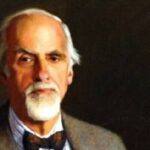Amy Cuddy biography and quotes

Amy Cuddy (Amy Joy Casselberry Cuddy; July 1972) is an American social psychologist, professor, and author. She is known for her research on body languages, power poses and presence, and she is famous for her TED talks. She is the second most viewed expert speaking on TED talk. Amy Cuddy also authored a New York Times bestseller: Presence: Bringing Your Boldest Self to Your Biggest Challenge in 2015 which is translated into more than 30 languages. This article covers her biography, quotes and publications.
Biography Amy Cuddy
Education
Amy Cuddy studied Psychology at University of Colorado Boulder in 1994. She continued her study by studying Social Psychology at the University of Massachusetts Amherst in 1998. She additionally obtained her Ph.D. in Social Psychology from Princeton University.
In 2005, after graduation, Amy Cuddy worked as an Assistant Professor at Rutgers University in New Jersey. She kept working as an assistant professor at various universities for approximately a decade, including Kellog School of Management and Harvard Business School. Amy Cuddy still lecturers and currently teaches courses like negotiating, leadership and persuasion as an associate professor at Harvard Business School.
However, her study period did not go smoothly. When Amy Cuddy was nineteen, she was in a car accident when she was with friends to help organize a conference. Amy Cuddy and her friends had to drive 14 hours to get home during the evening, but they planned to establish shifts in which each person would drive some certain hours. Amy was the last person who could sleep, but when she did, they all fell asleep and ended up in a car accident.
Because of this, Amy Cuddy sustained a traumatic brain injury and she received occupational therapy, physical therapy, and psychological counseling to recover from the accident. It was expected she would not be the same as she was before the accident. Amy Cuddy was changed so extraordinarily that her best friends did not recognize her anymore.
Because of the injury, Cuddy was disoriented, but she had the willpower to continue her life. She went back to school, but she realized it was too soon when she did not understand all the words of the lecturer. In reality, Amy Cuddy had to start over, and consequently, she had to relearn how to learn. She eventually finished her studies four years after her friends finished their study.
When she recovered, Amy Cuddy liked reading psychology. Her injury led her to study the science of presence. Consequently, she changed her perspective to researching and took into account the social science.
In 2010, Amy Cuddy became famous for her research on power poses. Her research identified that testosterone levels could change as a result of the poses. The study impressed many parties, including Psychological Science, CNN, Oprah magazine, and TED.
Ted Talk
In this time, Amy Cuddy was invited to speak at a TED conference. Her TED Talk, Your Body Language May Shape Who You are, has at this moment been viewed more than 46 million times and is one the most popular video on TED. Her Ted Talk has been named by the Guardian as ‘One of the 20 online Talks that Could Change Your Life’. Cuddy continued providing TED speeches, and within a short-term, she became globally known.
Cuddy was not prepared for the positive crowd. She never expected that so many people would listen to her story. She stated that she had no idea how vulnerable and exposed she felt when she told her story on stage. However, at this moment, she feels happy that she shared her story because it makes her happier when other people share their story with her.
Even though Amy Cuddy lectures at Harvard Business School, her inspiration comes from outside the classroom. She researches how body language can influence people. In her research, Amy Cuddy analysis hormones, body language, emotions, and stereotypes.
As a result of her research, and together with Peter Glick, they created the Stereotype Content Model (SCM), a theory that all group stereotypes and interpersonal impressions form along two dimensions: warmth and competence. They additionally created the Behaviors from Intergroup Affect and Emotions map (BIAS map).
Amy Cuddy’s research has been published by various parties in top academic journals, including The Journal of Personality and Social Psychology, Trends in Cognitive Sciences, Psychological Science, Research in Organizational Behavior, and Advances in Experimental Social Psychology. Her work has also been featured by high ranked publishers such as New York Times, Wall Street Journal, BBC, the Guardian and many others.
In 2017, BBC named Amy Cuddy as one the 100 innovators and change-makers of 2017. She was called a game changer by Times, and Business Insider states that Amy Cuddy is one of the 50 Women Who Are Changing The World. Additional recognitions have been given by Thinkers 50, HR Magazine, Twitter, and World Economic Forum.
Additionally, Amy Cuddy has been awarded The Alexander Early Career Award, an award that recognizes significant contributions to the field of child and family policy and practice by a researcher of a practitioner who is within eight years of receiving a terminal degree, by Society for Psychological Study of Social Issues.
She also received A Rising Star Award, an award that recognizes outstanding psychological scientists in their earliest stages of their research career post-PhD whose innovative work has already advanced the field and signals great potential for their continued contributions, by the Association for Psychological Science.
Amy Cuddy has various times been invited to television shows such as the Late Show with Stephen Colbert, The Today Shows, Good Morning America, CBS This Morning, CNN with Anders Cooper, and many others. Next to this, she has written for New York Times, New York magazine, Harvard Business Review, and CNN.
At this moment, Cuddy still lectures at Harvard Business School. She is married to Paul and they have a son, Jonah. She is currently writing a new book about bravery, bullying, and by-standing. She also recently collaborated with New Citizenship Project to look at how to enrich political conversations and policy generation at all levels of society.
Famous quotes
- “The mind shapes the body, and the body shapes the mind.”
- “I would never encourage anyone to adopt a contractive posture. It’s not good for you physically. It’s not good for you psychologically.”
- “People want to feel understood by their leaders. “
- “You have to buy what you’re selling. If you don’t buy what you’re selling, nobody will.”
- “When we’re sad, we slouch. We also slouch when we feel scared or powerless.”
- “We convince by our presence,” and to convince others we need to convince ourselves.”
- “Trust is the conduit for influence; it’s the medium through which ideas travel.”
- “What I most want you to understand is that your body is continuously and convincingly sending messages to your brain, and you get to control the content of those messages.”
- “Don’t fake it till you make it. Fake it till you become.”
- “A confident person — knowing and believing in her identity — carries tools, not weapons.”
- “Focus less on the impression you’re making on others and more on the impression you’re making on yourself.”
- “A truly confident person does not require arrogance, which is nothing more than a smoke screen for insecurity.”
- “I am larger, better than I thought, I did not know I held so much goodness.”
Books, publications and articles by Amy Cuddy et al.
- 2021. The Future of Women in Psychological Science. Perspectives on Psychological Science, 16, 483-516.
- 2018. P-Curving a More Comprehensive Body of Research on Postural Feedback Reveals Clear Evidential Value for Power-Posing Effects: Reply to Simmons and Simonsohn. Psychological Science.
- 2017. Visual Attention to Powerful Postures: People Avert Their Gaze From Nonverbal Dominance Displays. Journal of Experimental Social Psychology, 68, 60-67.
- 2016. Racism, Causal Explanations, and Affirmative Action. In J. Krosnick, I-C Chiang, & T. Stark (Eds.) Political Psychology: New Explorations. (419-445.) New York: Routledge.
- 2015. Presence: Bringing your boldest self to your biggest challenges. Hachette UK.
- 2015. Preparatory power posing affects nonverbal presence and job interview performance. Journal of Applied Psychology, 100(4), 1286.
- 2015. Men as cultural ideals: Cultural values moderate gender stereotype content. Journal of Personality and Social Psychology, 109(4), 622.
- 2013. Connect, then lead. University of Washington.
- 2012. The benefit of power posing before a high-stakes social evaluation.
- 2012. Preparatory Power Posing Affects Performance and Outcomes in Social Evaluation. Harvard Business School.
- 2011. The dynamics of warmth and competence judgments, and their outcomes in organizations. Research in Organizational Behavior, 31, 73-98.
- 2010. OPOWER: Increasing Energy Efficiency through Normative Influence (A).
- 2009. Stereotype content model across cultures: Towards universal similarities and some differences. British Journal of Social Psychology, 48(1), 1-33.
- 2009. Is the stereotype content model culture-bound? Cross-cultural universalities and differences of stereotyping principles. British Journal of Social Psychology, 48(1), 1-33.
- 2008. Warmth and competence as universal dimensions of social perception: The stereotype content model and the BIAS map. Advances in experimental social psychology, 40, 61-149.
- 2008. Competence and warmth as universal trait dimensions of interpersonal and intergroup perceptions: The stereotype content model and the BIAS map. Advances in experimental psychology, 40, 61-149.
- 2007. The BIAS map: behaviors from intergroup affect and stereotypes. Journal of personality and social psychology, 92(4), 631.
- 2007. Legitimating status inequalities: The effect of race on motherhood discrimination Manuscript submitted for publication.
- 2007. Aid in the aftermath of Hurricane Katrina: Inferences of secondary emotions and intergroup helping. Group Processes & Intergroup Relations, 10(1), 107-118.
- 2005. This old stereotype: The pervasiveness and persistence of the elderly stereotype. Journal of social issues, 61(2), 267-285.
- 2004. Working moms can’t win: Mothers are incompetent and career women are unkind. Journal of Social Issues>, 60, 701-718.
- 2004. When professionals become mothers, warmth doesn’t cut the ice. Journal of Social Issues, 60(4), 701-718.
- 2004. Toward pancultural principles of stereotyping. Unpublished manuscript, Princeton University.
- 2002. Doddering but dear: Process, content, and function in stereotyping of older persons. W: TD Nelson (red.) Ageism: Stereotyping and prejudice against older persons (s. 3–26).
How to cite this article:
Zeeman, A. (2018). Amy Cuddy. Retrieved [insert date] from Toolshero: https://www.toolshero.com/toolsheroes/amy-cuddy/
Original publication date: 04/24/2018 | Last update: 09/01/2023
Add a link to this page on your website:
<a href=”https://www.toolshero.com/toolsheroes/amy-cuddy/”>Toolshero: Amy Cuddy</a>











